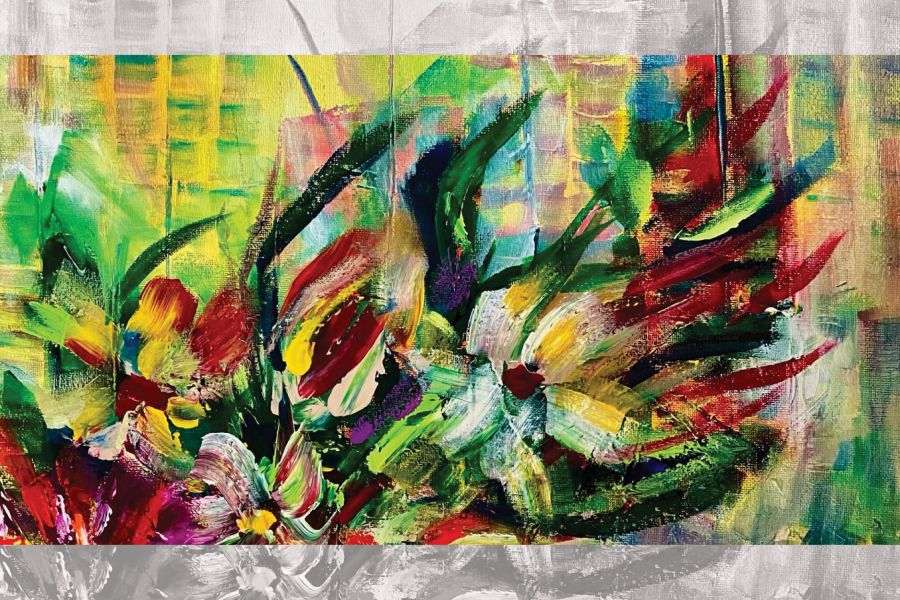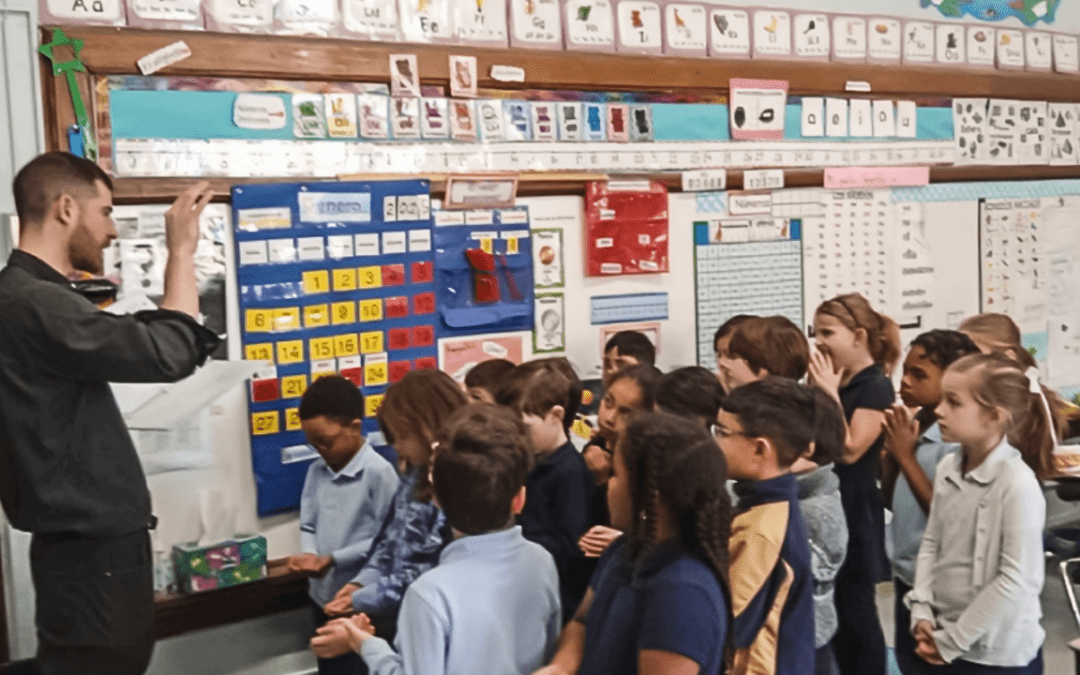Benedictine influence upon liturgy as both prayer and an academic subject spans centuries. It is also found in my own short life. In grade school the Benedictine sisters taught me how to pray, how to read music, and to love Our Lady. Fifteen years later the Benedictine monks of St. John’s University, Collegeville, furthered my theological training and awarded me an MA in Liturgical Studies. And now I study and write with Benedictines and their colleagues at Sant’Anselmo on the Aventine hill in Rome.
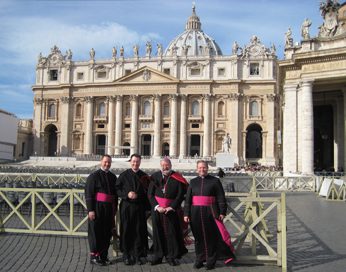
While impressive, the Benedictines do not have a monopoly in the area of liturgical studies. Fr. Virgil Michel, OSB, is rightly considered the “pioneer” of the liturgical movement in the United States, but the dedication to and vision for liturgical education by Fr. Michael Mathis, C.S.C., made immense contributions to the Church.
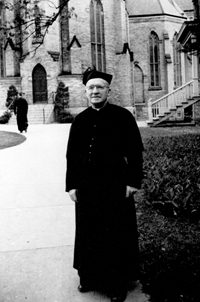
In the late 1940s and 1950s, Fr. Mathis invited leading European scholars to Notre Dame to give lectures and teach. Joseph Jungmann, Louis Bouyer, Jean Danielou and others – all considered giants in the liturgical movement – collaborated with the Notre Dame faculty and the Holy Cross priests and brothers. Notre Dame’s strong influence in liturgical studies remains to this day.
Valuable, then, is this transatlantic relationship and collaboration. And I value my experiences in both American schools and in Rome. To pray at the tombs of the apostles and to study near the Holy Father provides a unique perspective of the Catholic Church, her worship, and her universality.
We Christians can be educated in the liturgy but more importantly we must be formed by the liturgy. This formative nature of the liturgy is operative for each of the baptized as well as in particular ways for the seminarian and then the ordained priest. Pope Benedict XVI wrote, “In order to give an ever greater Eucharistic form to his existence, the priest, beginning with his years in the seminary, should make his spiritual life his highest priority. If celebrated in a faith-filled and attentive way, Mass is formative in the deepest sense of the word, since it fosters the priest’s configuration to Christ and strengthens him in his vocation” (Sacramentum caritatis, 80).
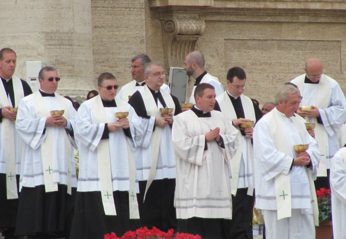
My doctoral dissertation seeks to understand better both the nature and function of this liturgical formation upon the seminarian as well as its history in the modern era when the study of liturgy became a theological subject in its own right. Whereas before the Second Vatican Council liturgical studies and formation was more or less relegated to dogmatics on one end and pragmatic practica on the other, the Church now lists liturgical studies as one of the top five principal topics of study.
Studying liturgy can be daunting because it seeks to understand the “summit toward which the activity of the Church is directed” and “the font from which all her power flows” (Sacrosanctum concilium, 10). It incorporates all other theological elements: Sacred Scripture, canon law, ritual, pastoral ministry, sacramental, etc. But I am tremendously grateful first to the sisters who with my parents taught me how to pray and to Holy Cross for asking me to contribute to the Congregation’s mission in this way.
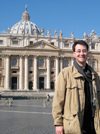
Fr. Michael Wurtz, C.S.C., professed final vows in the Congregation of Holy Cross on August 30, 2003, and then was ordained to the priesthood on April 17, 2004. He shares his vocation story as a journey of trusting in Divine Providence. Currently he is in Liturgical Studies at Sant’Anselmo in Rome. He is one of over a dozen Holy Cross priests in the United States Province pursuing advanced degrees to better serve as educators in the faith. Learn more about the work of Holy Cross in education, as well as hear from some of the other Holy Cross priests in advanced studies.

